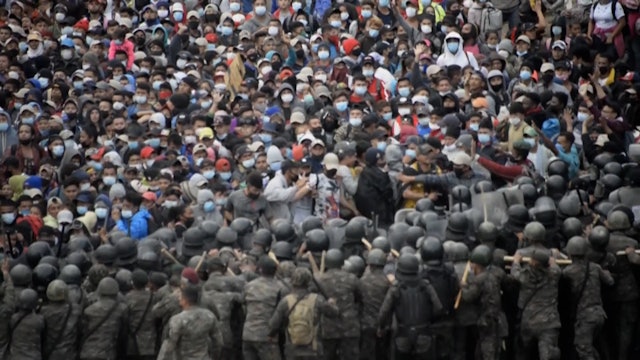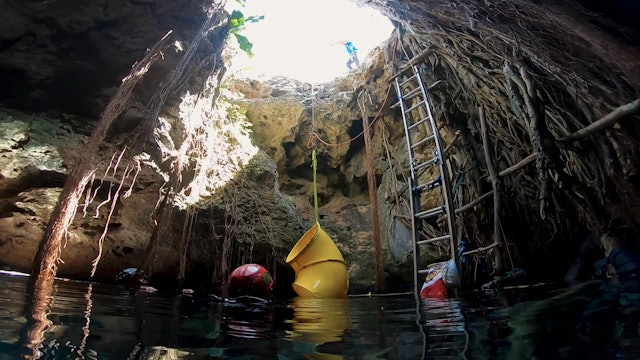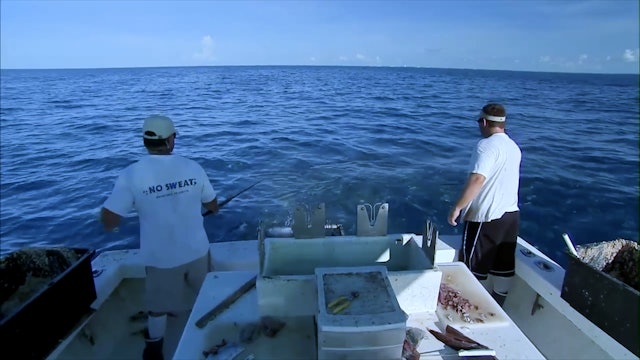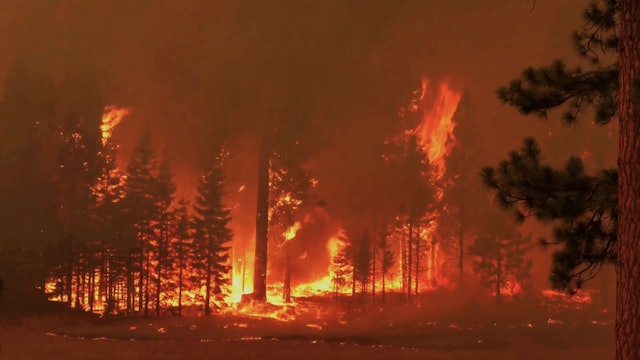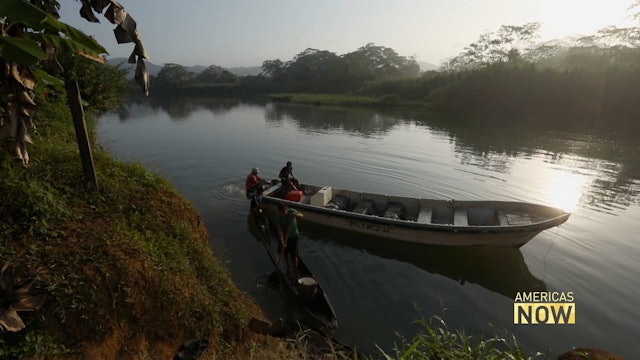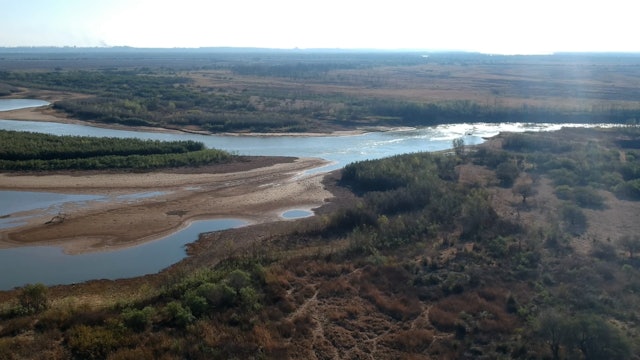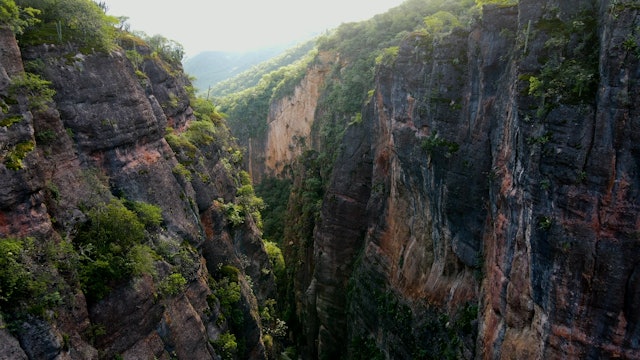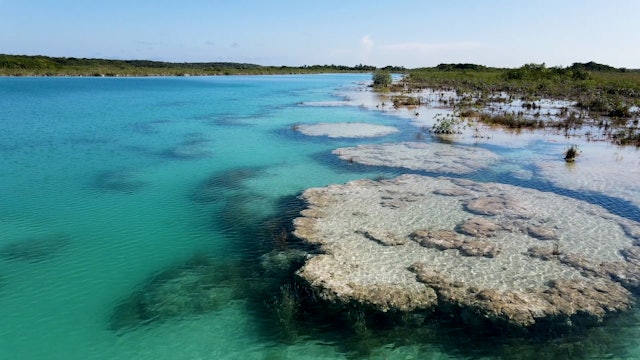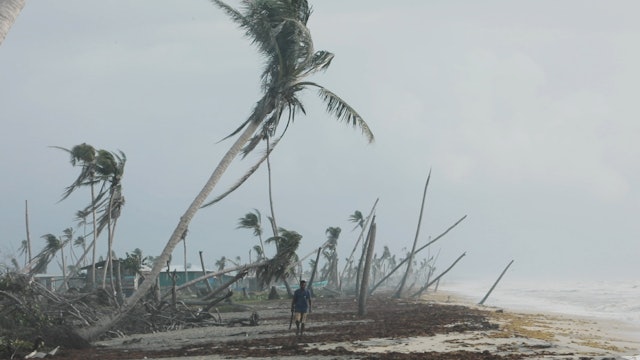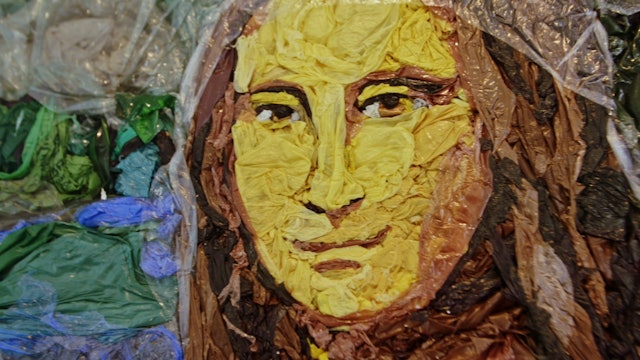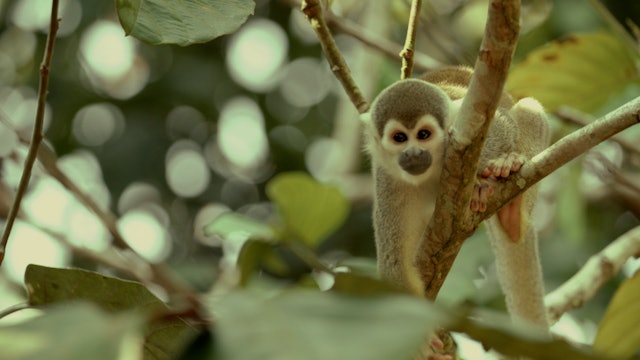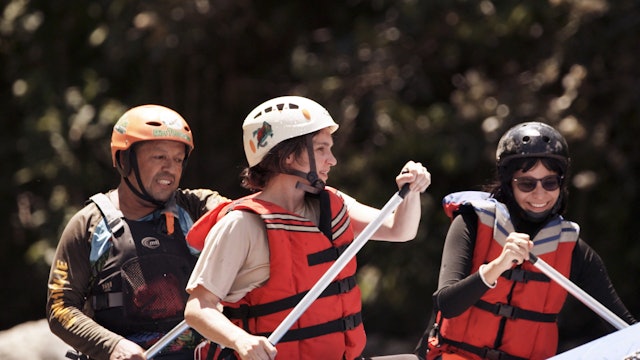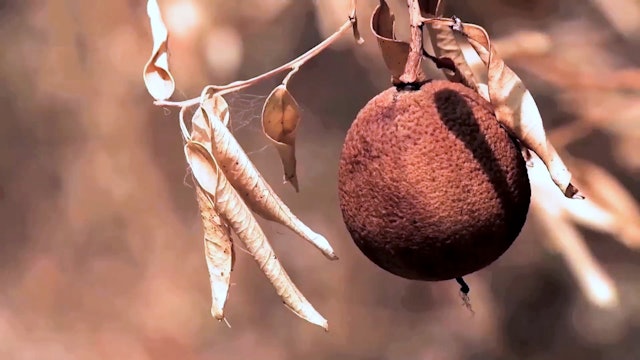Americas Now
Join us in uncovering the untold tales that influence our collective future in "Americas Now." Discover the richness, variety, and vitality of the Americas in a whole new way. Every story is a journey, and every journey is an adventure.
-
COVID-19 Pandemic Worsens Hunger in Central America
Some of the poorest communities in the Western hemisphere are located in Central America. For years, severe droughts have been causing widespread hunger. The COVID-19 pandemic made things worse when shutdowns severely cut back on economic growth. It's a situation that's repeated across Latin Amer...
-
Monarch Butterflies Migration Undisturbed by Humans in COVID-19 Lockdown
As the pandemic continues to rage around the world, nature, it seems, hasn’t noticed much of a difference.
While human society lives through the upheaval of the global COVID-19 pandemic, nature has continued here unperturbed.
And when it comes to massive migrations, perhaps none is more impressi... -
Islands of plastic floating off the coasts of Central America
The accumulation of plastic debris on our oceans and rivers has led to the formation on garbage patches and floating islands non-biodegradable waste in open waters. In the Americas one of the worst cases happens out of the coast of Guatemala and Honduras. Harris Whitbeck reports.
-
Hunger in Central America Fuels Illegal Migration to the US
Earlier in 2021, nearly 8,000 migrants from Honduras tried to cross into Guatemala to join more Central Americans in a caravan attempting to reach the United States. They were escaping the economic effects of a lockdown due to the COVID-19 pandemic. But that was only made worse when twin hurrican...
-
Vaccination in the Galapagos Islands will bring back Tourism
They serve as a treasure trove to scientists and a paradise for nature tourists. The Galapagos Islands.
Located 1000 kilometers off the coast of Ecuador, they feature plant and animal life found nowhere else in the world. On these islands, tourism has been the main industry for the 30,000 people... -
The relationship between soil and climate change
When we talk about climate change we tend to focus on the quality of air, the weather and even the tides. We rarely think about what’s in the ground. Mike Kirsch went to Columbus, Ohio to meet with a scientist most knowledgeable about soil.
-
Florida Scientists Breed Coral To Restore The Damaged Reef
It's the third largest coral reef in the world but it’s the closest to a high-density population that can potentially cause coral disease. But a group of scientists from Miami University and the Florida Aquarium are embarking on a two-day restoration effort to monitor previously transplanted cora...
-
Argentinean Youth Commit To The Climate Fight
A group of young adults in their early 20s and late teens have set in motion a youth movement focused on climate activism. Americas Now went to meet four members of Jovenes por el Clima -Youth for Climate.
Since that day, the group has been growing rapidly. They have members across the country an... -
Becoming an urban gardener in Argentina
Between the COVID-19 pandemic, climate change and high food prices, more and more people are rethinking the way they eat and produce. In fact, many in the city have been turning their backyards and balconies into urban gardens. Joel Richards explains how this trend is growing in Argentina.
-
Using ancient Asian techniques to grow food in the rainforest
Brazil is trying to accelerate its food production without causing damage to the Amazon. A small town in the country’s northern region has become a prototype to follow. The town uses Asian farming techniques applied over a century ago. Maria Valls reports.
-
Mexican Environmentalist Targeted With Violence
Not so in Latin America. For years, it has been one of the world’s deadliest regions for environmental activists. Colombia usually tops this tragic list. Mexico is not far behind, with 18 activists assassinated in 2020. This year, Mexico is on track to surpass that grim record. Americas Now corr...
-
The Monumental Task of Cleaning Mexican Cenotes
Mexico is one of the world’s most biodiverse countries, with arid deserts and steamy jungles, raging coastlines and soaring mountain peaks. And in the Yucatan peninsula, a region home to the Mayan culture for millennia, local environmental activists are working to protect their unique subaquatic ...
-
Commercial fishing faces a crisis in Florida
Florida brands itself as “The Fishing Capital of The World.” But in some areas, the “Sunshine State” is starting to see a depletion of its fish. John Zarrella went to the famous Florida Keys to find out why catching fish is harder now.
-
California Becomes Ground Zero for Wildfires
Wildfire season in the U.S. normally runs from June to November. But this year began with frightening numbers and some very destructive activity early on. Mike Kirsch deployed to what has become ground zero for wildfires. The state of California.
-
Rainforest Guardians are Ready to Fight Against Climate Change
An alliance of indigenous forest dwellers around the world has committed to curbing carbon emissions. Harris Whitbeck went to Panama to meet with some guardians of the rainforests fighting against climate change.
-
The Parana River is at its Lowest Level in Living Memory
The Parana River in South America is the second-longest river. It runs almost 5 thousand kilometers through Brazil, Paraguay, and Argentina. But the Parana is at its lowest levels since the 1940s. Joel Richards reports on the economic and social impacts.
-
Communities in Southern Mexico are protecting endangered Military Macaws
Protecting endangered species is a constant battle in Latin America, especially because of animal trafficking. According to the World Wildlife Fund, animal population sizes have dropped 94% in the last 50 years, the largest fall in any part of the planet. The most trafficked animals are birds. Th...
-
Lagoon of Seven Colors in Mexico threatened by development
Mexico´s Lake Bacalar, on the border with Belize, attracts tourists from across the world. The lake is famous for its stunning colors. This geographical wonder is also a scientific gem concealing a unique organism. But as tourists come to see its crystal-clear waters, Alasdair Baverstock reports ...
-
Nicaragua Miskito People Facing the Worst of Climate Change
In November 2020, brutal back-to-back hurricanes smashed into Nicaragua’s Caribbean coast, knocking down homes and trees and washing away beaches. The ferocity of the storms, and their frequency, scientists say, are signs of climate change. If this is the new normal, then Central America is set t...
-
Brazilian Artist Seeks to Provoke With His Art
Thought-provoking artist Eduardo Srur aims at taking people out of their comfort zones to make them question their reality. He feels optimistic about his work and the power it has to transform future generations. Correspondent Maria Vals has his story.
-
Colombian Locals Make Rehabilitation of Trafficked Monkeys their Life's Work
According to the United Nations, one of the top 5 most profitable illicit businesses on the planet is illegal wildlife trafficking. It ranks 4th after narcotics, weapons, and human trafficking. One Colombian community in the Amazon is making a difference by rehabilitating orphaned monkeys that h...
-
Erratic rainfall in Honduras
During the last few years, it’s been a challenge for residents of Honduras to identify the “rainy season.” Rainfall in the country has become so unpredictable. It’s a concern because it’s affecting agriculture and food supply too.
-
Former Guerilla Fighters Bring Tourism to the Jungle
The rainforest and mountains in southern Colombia are home to stunning scenery and unique species. But for decades tourists weren't able to go there because of the armed conflict. Now former FARC guerrillas have become tour guides and are teaching others about the land that used to be their refug...
-
Creative solutions to cultivating crops during severe drought
According to some scientists, the severe drought conditions observed across most of the U.S. and northern Mexico in 2021 are forecasted to get worse in the years ahead. A combination of high temperatures and long periods without rain caused what climate experts describe as "near catastrophic farm...






